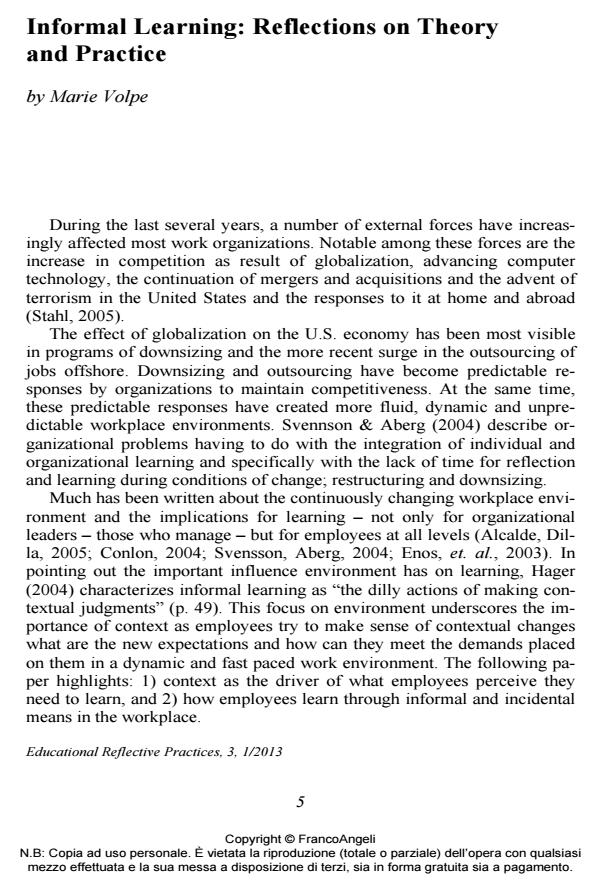Informal Learning: Reflections on Theory and Practice
Titolo Rivista EDUCATIONAL REFLECTIVE PRACTICES
Autori/Curatori Marie Volpe
Anno di pubblicazione 2013 Fascicolo 2013/1
Lingua Inglese Numero pagine 6 P. 5-10 Dimensione file 138 KB
DOI 10.3280/ERP2013-001001
Il DOI è il codice a barre della proprietà intellettuale: per saperne di più
clicca qui
Qui sotto puoi vedere in anteprima la prima pagina di questo articolo.
Se questo articolo ti interessa, lo puoi acquistare (e scaricare in formato pdf) seguendo le facili indicazioni per acquistare il download credit. Acquista Download Credits per scaricare questo Articolo in formato PDF

FrancoAngeli è membro della Publishers International Linking Association, Inc (PILA), associazione indipendente e non profit per facilitare (attraverso i servizi tecnologici implementati da CrossRef.org) l’accesso degli studiosi ai contenuti digitali nelle pubblicazioni professionali e scientifiche.
Much has been written about the continuously changing workplace environment and the implications for learning - not only for organizational leaders - those who manage - but for employees at all levels. Several theorists underscore that learning is strongly influenced by the workplace environment, by the context in which people work, by informal learning. The paper highlights 1) context as the driver of what employees perceive they need to learn, and 2) how employees learn through informal and incidental means in the workplace.
Marie Volpe, Informal Learning: Reflections on Theory and Practice in "EDUCATIONAL REFLECTIVE PRACTICES" 1/2013, pp 5-10, DOI: 10.3280/ERP2013-001001